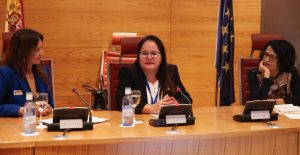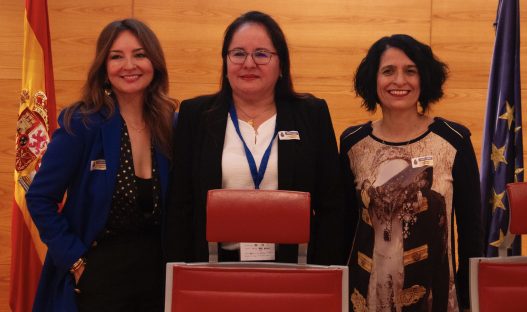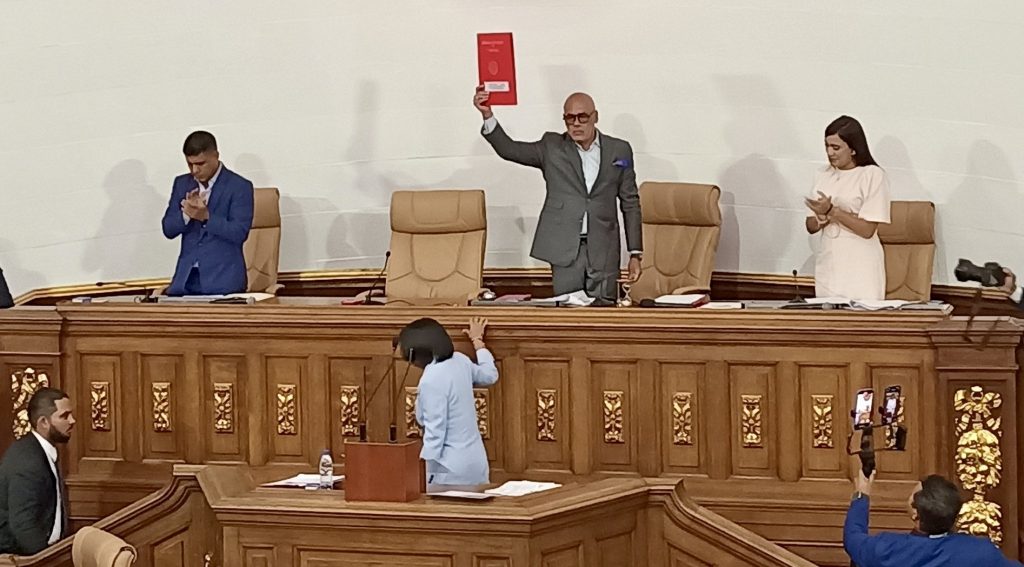
JOURNALISM LOSES VALUABLE STORIES IF IT DOES NOT CARE ABOUT INCLUSION
There are 4.5 billion people living in poverty who are not usually reflected in the media.
This is a figure and a comment that came from Elena Martinez, deputy director general of the CODESPA Foundation in Spain. She was one of the speakers at the panel on Inclusion and diversity in the media held during the VII Congress of Media Editors of the European Union, Latin America and the Caribbean, held on March 18-21, 2024 in Madrid and Brussels.
The panel took place on March 19, at the premises of the Spanish Senate, in the center of Madrid. In this video you can see a summary of the activities of that day.
The panel also featured Costa Rican journalist Iary Gómez, media consultant, and Colombian journalist Alba Lucía Reyes, correspondent in Spain for WRadio.
Martínez said that social organizations that work with groups that are normally excluded find it difficult to be relevant in the media.
“From the outside, we see that they give us superficial space in the media,” said Martínez. That was one of the reasons why Codespa, a development cooperation NGO, created a journalism award, focused on highlighting works of constructive, solutions journalism.
“We hope that the media will count on social organizations as spokespersons for facts, stories and contexts that enrich the journalistic world,” Martinez asked. She pointed out that there are now more spaces in the media that address social issues. She hopes that these spaces will grow.
On her side, Alba Lucía Reyes, said that she hopes not only that these spaces grow but also that they have continuity. She acknowledged that many times the media address issues related to groups normally excluded, but in an “opportunistic” way, in the heat of the news events. “It has to be done in a programmatic way,” he said,
He also called attention to the narrative that is used when dealing with such issues and asked whether the media are including diverse voices that narrate the facts from their own perspectives.
WHAT CAN BE DONE TO MAKE INCLUSION PERMANENT?
Iary Gómez called for an emphasis on the composition of newsrooms: How diverse are they, how many women, how many people with disabilities, how many Afro-descendants are part of the journalistic teams?
Gómez said that in her country, Costa Rica, there is a law that requires a minimum percentage of Afro-descendants on the media staff. He also mentioned the presence of blind journalists among his Costa Rican colleagues.
In the forum it was considered that, beyond the fact that there is some kind of obligation or other autonomous mechanisms that tend to a greater diversity in the newsrooms, care must be taken in the content that is finally presented to the public.
A public that is eager for new topics. According to Reyes, there is a report that indicates that, at least in Europe, 65% of people consider inclusion important and are willing to pay for information that contains these elements of diversity.
But, above all, there must be a motivation related to the basic principles of journalism. Martinez emphasized that the media must never lose sight of the fact that they are the ones that help build different, diverse and inclusive voices. “The media are spaces for the concertation of rights and they give voice to those who do not have it, they must never forget that.”
ABOUT THE CONGRESS OF EDITORS
The VII Congress of Media Editors of the European Union, Latin America and the Caribbean is an event organized by Grupo Prestomedia with the support of EditoRed, the European Commission and the European Parliament, Telefónica, Iberia and the Community of Madrid, as well as the collaboration of Universidad Rey Juan Carlos, Turismo de Galicia and Casa de América, and with Prensamedia as editorial partner.
This year, the general theme of the Congress was: “The quality of information and the credibility of the media, guarantees for democracy”. The meeting took place on March 18-19, 2024 in Madrid, Spain, and on March 20-21 in Brussels, Belgium.
————
This text is free to use. If you use it, please cite EditoRed.



